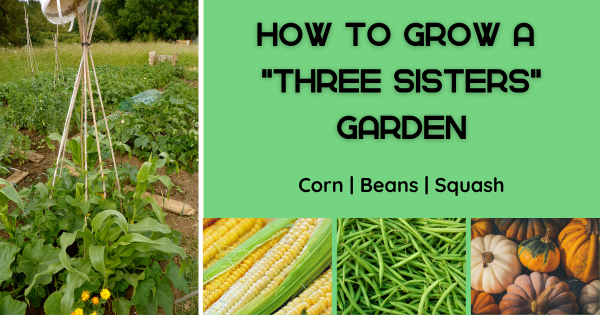
A special program series this summer aims to help participants broaden their plant-based recipe repertoire by learning to cook with what are known in some indigenous communities as the “three sisters.” Those food items – corn, beans, and squash – are staples in Mexican cuisine which grow well right here in Iowa. They’re known as the “three sisters” because they can be grown together in symbiosis--the corn provides a structure which the beans climb up, the beans fertilize the soil, and the squash leaves shade the ground and help prevent weeds.
Three programs will take place on Saturdays over the course of the summer. You’ll chop, mix, and sample several vegetarian recipes that feature each ingredient and take home a recipe card to make again at home. You don't need to have a three sisters garden to take part in these programs, but if you want to plant your own garden, you'll have all those ingredients on hand when you try those recipes at home. It's not too late to do so!
The Farmer’s Almanac has a few tips for those that are interested in starting their own garden:
Before planting, choose a sunny location (at least 6 hours of full sun every day). This method of planting isn’t based on rows, so think in terms of a small field. Each hill will be about 4 feet wide and 4 feet apart, with 4 to 6 corn plants per hill. Calculate your space with this in mind.
Plant corn first, once the danger of frost has passed and nighttime temperatures reach 55°F (13°C). Don’t plant any later than June 1 in most areas, since corn requires a long growing season. See local frost dates.
Don’t plant the beans and squash until the corn is about 6 inches to 1 foot tall. This ensures that the corn stalks will be strong enough to support the beans. The beans’ role is to fix nitrogen in the soil, which is needed for strong corn production. You can grow several pole bean varieties without worrying about hybrids, but just plant one variety per hill.
You can check out their website for full instructions. You can also take a look at Native Seed/Search’s (NS/S) tips and tricks. NS/S is a nonprofit seed conservation organization that has suggestions on different ways to lay out your garden, depending on your space.
Vegetarian Mexican Cuisine Series at the Central Library
- Corn - Saturday, June 10, 11 AM
- Try fresh tortillas from a local tortilleria and learn what goes into making homemade tortillas, chips, sopes, and gorditas. Plus, you’ll learn how to make roasted tomato salsa for chilaquiles.
- Beans - Saturday, July 15, 11 AM
- Starting with dried beans, we’ll show you how to integrate beans into your meals and make pico de gallo and enfrijoladas.
- Squash - Saturday, August 12, 11 AM
- Learn to make squash blossom quesadillas and delicious zucchini tacos.
Last Modified December 16, 2025